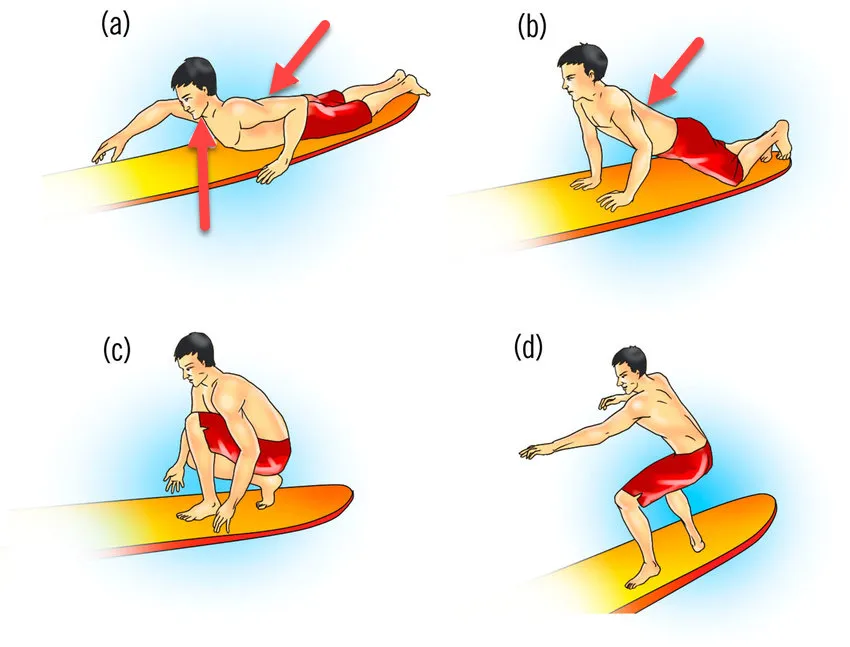Beyond the Waves: Specialized Care for Surfer’s Myelopathy and Other Water-Related Spinal Injuries in Hawai’i
The allure of Hawai’i’s pristine waves is undeniable, drawing both seasoned pros and first-time surfers to its shores. But with the incredible power of the ocean comes inherent risk. While many are aware of the dangers of reefs and powerful wipeouts, a lesser-known but potentially devastating condition called Surfer’s Myelopathy, along with other water-related spinal injuries, requires specialized attention. For those in Honolulu, understanding these risks and knowing where to turn for expert care is crucial for staying safe in the water.
What is Surfer’s Myelopathy?
Surfer’s Myelopathy is a rare, non-traumatic spinal cord injury that predominantly affects novice surfers. It’s caused by the prolonged hyperextension of the back while paddling on a surfboard. This arched position can restrict blood flow to the spinal cord, leading to a range of serious neurological symptoms.
The onset is often subtle, beginning with lower back pain that can rapidly progress to tingling, numbness, and, in severe cases, partial or complete paralysis of the legs. The frightening reality is that this can happen without any direct trauma or impact.
Hawai’i’s Unique Risks: More Than Just a Wipeout
Here in Hawai’i, our world-renowned surf breaks and shore breaks mean that water-related spinal injuries are a significant concern. In fact, data from the Hawai’i Department of Health shows that ocean activities are a leading cause of spinal cord injuries in the state, affecting visitors and locals alike.
These injuries aren’t limited to Surfer’s Myelopathy. They also include:
- Vertebral Fractures: Resulting from the forceful impact of a wave, a surfboard, or the seafloor.
- Herniated Discs: The repetitive twisting and jarring motions of surfing can lead to disc damage over time.
- Ligament and Muscle Sprains: Overuse and improper technique can strain the complex network of tissues supporting the spine.
Specialized Spine Care for Hawai’i’s Water Enthusiasts
Treating these unique injuries requires a nuanced approach that goes beyond standard pain management. A specialized spine and pain management clinic in Honolulu will offer:
- Rapid and Accurate Diagnosis: Utilizing advanced imaging like MRI to quickly assess spinal cord and nerve health.
- Minimally Invasive Treatments: Offering cutting-edge, non-surgical interventions such as epidural steroid injections to reduce inflammation and pain, and radiofrequency ablation to provide long-lasting relief.
- Regenerative Medicine: Exploring options like Platelet-Rich Plasma (PRP) therapy to promote the natural healing of damaged tissues.
- Culturally Sensitive Rehabilitation: Developing physical therapy and recovery plans that respect the patient’s lifestyle and desire to return to the water safely.
Living an active life in Hawai’i is a gift. Protecting your spinal health is the key to enjoying it for years to come. If you experience any back pain or neurological symptoms after a day in the water, seeking immediate evaluation from a specialist is paramount.
What are the first signs of Surfer's Myelopathy?
The earliest signs of Surfer’s Myelopathy typically include mild to moderate lower back pain while surfing, which can be followed by a tingling or “pins and needles” sensation in the legs. As the condition progresses, individuals may experience increasing weakness, difficulty walking, and loss of sensation, sometimes leading to paralysis. Urgent medical evaluation is critical if these symptoms appear.
Can I prevent spine injuries while surfing?
While not all injuries are preventable, you can significantly reduce your risk. It’s important to properly warm up before entering the water, maintain good core strength, and use the correct paddling technique to avoid excessive back hyperextension. For beginners, taking lessons from a certified instructor and taking frequent breaks to rest your back are highly recommended.
What kind of doctor should I see for a surfing-related back injury in Honolulu?
For a surfing-related back injury, you should see a spine and pain management specialist. These doctors have specialized training in diagnosing and treating complex spinal conditions. Look for a clinic in Honolulu that has experience with sports-related injuries and offers a range of treatments, from non-invasive therapies to advanced, minimally invasive procedures.